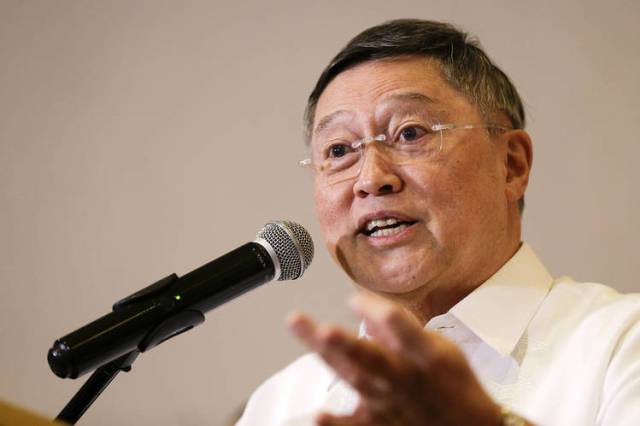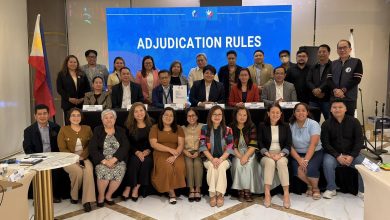The Philippine government announced Monday a Php 27.1 billion package to combat the spread of coronavirus disease (COVID-19) and provide economic relief to business severely battered by the pandemic, GMA News reported.
“As directed by President Duterte, the government will provide targeted and direct programs to guarantee that benefits will go to our workers and other affected sectors,” Finance Secretary Carlos Dominguez said in a press release.
“We have enough but limited resources, so our job is to make sure that we have sufficient funds for programs mitigating the adverse effects of COVID-19 on our economy,” the finance chief added.
This fiscal support package crafted by the government’s economic team includes:
· The mobilization of an additional P3.1 billion to contribute directly to efforts to stop the spread of COVID-19, including the acquisition of test kits. The funds came from the Philippine Amusement and Gaming Corp. (Pagcor), Philippine Charity Sweepstakes Office (PCSO) and the Asian Development Bank (ADB);
· P2.0 billion representing the initial budget set aside by the Department of Labor and Employment (DOLE) for social protection programs for vulnerable workers, to be used for wage subsidy/financial support to COVID affected establishments and workers;
· Mobilization of an existing P1.2 billion in the Social Security System (SSS) to cover unemployment benefits for dislocated workers;
· The Technical Education and Skills Development Authority (TESDA)’s Scholarship Programs amounting to P3 billion will support affected and temporarily displaced workers through upskilling and reskilling. It is also offering free courses for all who would like to acquire new skills in the convenience of their own homes, mobile phones and computers through the TESDA Online Program;
· Various programs and projects of the Department of Tourism (DOT) amounting to P14 billion from the Tourism Infrastructure and Enterprise Zone Authority (TIEZA) to support the tourism industry;
· P2.8 billion for the Survival and Recovery (SURE) Aid Program of the Department of Agriculture-Agricultural Credit Policy Council (DA-ACPC), which provides loans of up to P25,000 each at zero interest for smallholder farmers and fisherfolk affected by calamity and disasters. This initiative includes a one-year moratorium without interest on payments of outstanding loan obligations of small farmers and fisherfolk (SFF) borrowers under the ACPC Credit Program amounting to P2.03 billion; and
· P1 billion allotted by the Department of Trade and Industry (DTI) for its Pondo sa Pagbabago at Pag-Asenso (P3) Microfinancing special loan package of the Small Business Corp. (SBC) for affected micro entrepreneurs/micro, small and medium enterprises (MSMEs). Also included is the DTI’s ongoing assistance in finding new supply sources and non-traditional markets for industries affected by supply chain disruptions and the conduct of trade and investment missions to support the continued operation of industry;
Additional support mechanisms identified by the Economic Development Cluster include the following:
· A loan program of the Government Service Insurance System (GSIS) intended for affected government employees and retirees;
· Mobilization of funds from government-owned or -controlled corporations (GOCCs) to assist airlines and the rest of the tourism industry;
· Programs of the largest government banks to help address the impact of the health emergency, such as the Development Bank of the Philippines (DBP)’s Rehabilitation Support Program on Severe Events (RESPONSE), which provides public and private institutions in areas declared under a state of calamity with low-interest loans under a simplified application procedure; and the Land Bank of the Philippines (LANDBANK)’ offer of restructured loan amortizations by giving longer tenor and grace periods, with the option of a fixed interest rate under the LANDBANK Calamity Rehabilitation Support (LBP CARES); and
· The grant of temporary and rediscounting relief measures for financial institutions, as approved by the Monetary Board (MB). Bangko Sentral ng Pilipinas (BSP) Governor Benjamin Diokno earlier said that, “the MB is ready to deploy any or all its policy tools, as appropriate, to address all challenges to our own financial markets and growth prospects.”
The finance chief said the government has all the tools—medical, financial and monetary—to successfully handle this situation and stressed that the government will press ahead on regular budgeted expenditures.
He explained that accelerated government spending is now quintessential to stimulate economic activity and provide direct support to groups and individuals at risk due to COVID-19 pandemic.




